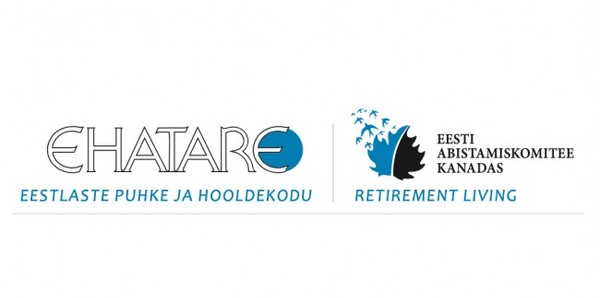Mike Collier
NEW YORK – The United Nations Human Rights Council (UNHCR) has delivered a shopping list of recommendations to the Baltic states to address what it believes are serious problems of discrimination and racism.
On 19 March during the 7th Session of the UN Human Rights Council, the snappily-titled UN Special Rapporteur on contemporary forms of racism, racial discrimination, xenophobia and related intolerance, Doudou Diène, submitted reports on all three countries.
The Senegalese bureaucrat visited the Baltic states from 16 to 28 September 2007, and has managed to produce well over 60 pages of problems, analysis and recommendations as a result, though large chunks of text are reproduced verbatim in the ‘individual’ reports about each country. A line about each nation being “at a turning point in its history” seems to be a particular favourite and some of the recommendations are state-the-obvious iterations that discrimination should not be encouraged but inclusiveness should.
However, Diene does also identify things individual to each country, particularly concerned with language, citizenship issues among ethnic Russians and serious job and educational discrimination against Roma people.
Some of his recommendations will be controversial – particularly in Latvia, where he hints at the use of Russian in an official capacity in parts of the country with a Russian majority.
The Baltic Times has read all three reports and summarises the main points below:
ESTONIA
Though praising Estonia’s legal framework, the report states: “The Special Rapporteur also found a number of areas of concern, primarily concerning three distinct communities in Estonia: the Russian-speaking minority, the Roma community and non-European migrants. The main concerns of the Russian-speaking community are directly related to statelessness, which predominantly affects this group, and the country’s language policy, which is seen as an attempt to suppress the usage of Russian. Despite its small size, the Roma community in Estonia, as elsewhere in Europe, suffers mostly from structural discrimination, precarious education and marginalization. Lastly, non-European minorities have experienced a surge in racist violence, particularly by extremist groups and intolerance by some individuals concerning their ethnic, religious and cultural diversity. Although each of these communities faces different types of problems, a truly long-term solution can only be achieved by focusing on the promotion of multiculturalism and respect of diversity.”
Russian groups Diene spoke with told him that “statelessness remains a central problem that mostly affects the Russian-speaking community. They highlighted that although the overall citizenship application procedures have been facilitated, they still pose problems to a number of vulnerable groups. The cost of language courses in Estonian was seen as a major obstacle for the economically marginalized segments of the population. The reimbursement of the expenses with language courses was not seen as helpful, since it only applies after the exam and covers exclusively candidates that are successful in the language examinations. The Special Rapporteur was informed that many candidates need to take the exam more than once, which entails an even higher cost. The situation of Russian-speaking elders was also considered as vulnerable, since the majority of people within this group have difficulties in terms of language instruction.”
Diene said he was “particularly impressed” by a roundtable meeting he had with community groups in the Russian-majority Ida Virumaa region.
“The members of the Roundtable demonstrate a profound understanding of intercommunity relations, making a deliberate – and appropriate – choice for a process of multicultural integration… The fact that this experience takes place in a region largely inhabited by the Russian-speaking community shows the potential of inter-community relations as a means to foster tolerance and understanding.” the report says.
His recommendations for Estonia include a demand that “The Government should establish a broad process of consultation with a view to reducing the gap in historical perceptions between the Estonian and Russian-speaking communities,” and a belief that “The language policy in Estonia should be subject to an open and inclusive debate, in close consultation with ethnic minorities, aimed at finding strategies that better reflect the multilingual character of Estonian society.”
(Excerpt from The Baltic Times, www.baltictimes.com Mar 23, 2008)
UN delivers human rights verdict on Baltics (1)
Archived Articles | 24 Mar 2008 | EWR
Viimased kommentaarid
Kommentaarid on kirjutatud EWR lugejate poolt. Nende sisu ei pruugi ühtida EWR toimetuse seisukohtadega.
“The Government should establish a broad process of consultation with a view to reducing the gap in historical perceptions between the Estonian and Russian-speaking communities,”
The current Kremlin administration, with its targeted and well funded revanchist and I dare say, historical dis-information campaign will make this “gap” very difficult to bridge. The Kremlin is clearly provoking and fanning the flames of race based conflict, not healing them. Not very helpful either is Kremlin meddling in the internal affiars of Estonia vis a vis the funding and promotion of ethnic rioting and its active encouragment of Ida-Virumaa's Russian majority breaking away to join the Russian Federation. Much of this rhetoric has even bled into the North American media, with Gusinksy’s RTV and several Canadian internet sites broadcasting the Kremlin’s position verbatim.
That's not to say that changes should not be made to further accommodate the Russian minority, however; this is will only become possible with a true evaluation of the broader picture that contains the realities that create the “gap” in historical perceptions. Perhaps a multi-lateral and broad based international truth and reconciliation commission would be the answer.
The current Kremlin administration, with its targeted and well funded revanchist and I dare say, historical dis-information campaign will make this “gap” very difficult to bridge. The Kremlin is clearly provoking and fanning the flames of race based conflict, not healing them. Not very helpful either is Kremlin meddling in the internal affiars of Estonia vis a vis the funding and promotion of ethnic rioting and its active encouragment of Ida-Virumaa's Russian majority breaking away to join the Russian Federation. Much of this rhetoric has even bled into the North American media, with Gusinksy’s RTV and several Canadian internet sites broadcasting the Kremlin’s position verbatim.
That's not to say that changes should not be made to further accommodate the Russian minority, however; this is will only become possible with a true evaluation of the broader picture that contains the realities that create the “gap” in historical perceptions. Perhaps a multi-lateral and broad based international truth and reconciliation commission would be the answer.
Archived Articles
TRENDING


















